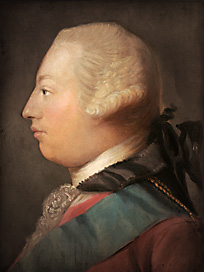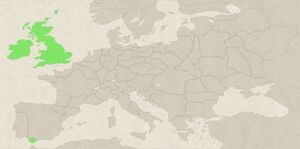
Flag of Great Britain under a Monarchy

Flag of Great Britain under a Republic
For other uses of the term, see Great Britain.
Great Britain is a major faction in Napoleon: Total War.
Tutorial[]
Great Britain plays a role toward the end of the tutorial. After consolidating his power in Paris, Napoleon is tasked with capturing the city of Toulon in Provence. Defeating the British forces there completes the tutorial.
Egypt Campaign[]
The British plays a small but important role in the Egypt campaign. They control the island of Cyprus, from which they can attempt to launch invasions of French regions. In stark contrasting to the Ottomans, Bedouin and Mamelukes, the British field superb line infantry and artillery, making them a serious threat to the French.
The French can attempt to invade Cyprus, but this is a very dangerous feat: the sea is patrolled by the British fleet, which has many more ships than the French can muster. Any French ships that are caught by the British navy in the open water runs a high risk of being destroyed. Capturing Cyprus, however, eliminates the British entirely, gives France a valuable region, and grants a large cash reward from completing its associated mission. In addition, Cyprus is an excellent staging point for attacking Ottoman lands.
Europe Campaign[]
Description[]

George III
Great Britain is a constitutional monarchy, a nation of free trade and personal liberty. Its people are seemingly devoted to making money and disliking foreigners in equal measure. Foreigners are, quite simply, just not very good at anything, be that running an empire or making a decent pie. Britons make no secret of their prejudice, a crass attitude that makes diplomacy difficult. The "English" as, much to the annoyance of the Scots, everyone calls them, are disliked in every court in Europe for this arrogance and their willingness to let everyone else do all the fighting and dying against the French. The apparent truth of this last point has been a gift to Bonaparte.
If the British do have a truly visceral dislike, then it would be the French, thanks to traditional rivalry and a genuine horror at the consequences of the French Revolution. While many British politicians were pleased to see an end to the Bourbon monarchy, they were repulsed by the insatiable bloodshed of the Terror, and fearful that the infection of revolution might cross the English Channel, with or without French bayonets to help it along. Invasion is a constant fear and, as always, an enemy in control of the Low Countries is enough to scare London.
Britain's position in 1805 is better than might be expected, but not due to its own efforts: Napoleon has managed to upset almost every other nation in Europe with his high-handedness. This is an opportunity for the British to build a new alliance, although this will mean paying handsome subsidies to its partners. As long as the Royal Navy can keep control of the seas, Britain is safe from invasion, but without a substantial army and continental allies this counts for little against France. Britain can contribute to the downfall of France, but needs time and resolve to muster its strength. Napoleon may not grant that time.
General Information[]
Victory Conditions[]
Historical
Capture and hold 20 regions, including the regions shown. Balearic Isles, England, Hannover, Provence, Spain, Denmark, Bretagne.
Complete by the end of your turn in: Late December 1812
World Domination
Capture and hold 60 regions, including the regions shown. England.
Complete by the end of your turn in: Late December 1812

Regions[]
London, England
- Starting Buildings - Magistrate, Cantonment, Cannon Foundry, Theatre
- Infrastructure - Not developed
- Population - 8308000
- Wealth - 5777
- Religion - Protestant 80%, Catholic 20%
- Villages/Towns/Ports - Birmingham (Gunsmith), Bristol (Trading Port), Chatham Docks (Commercial Port), Coalbrookdale Mines (Iron Mine), Liverpool (Trading Port), Manchester (Manufactory), Oxford (College), Peterborough Pasture (Stables), Portsmouth (Dockyard), York (Market), Yorkshire Farmlands (Farms)
Edinburgh, Scotland
- Starting Buildings - Tax Office
- Infrastructure - Not developed
- Population - 1608000
- Wealth - 1400
- Religion - Protestant 70%, Catholic 30%
- Villages/Towns/Ports - Dumfries Mines (Undeveloped Iron Mine), Glasgow (Undeveloped Port)
Cardiff, Wales
- Starting Buildings - Tax Office
- Infrastructure - Not developed
- Population - 587245
- Wealth - 750
- Religion - Protestant 80%, Catholic 20%
- Villages/Towns/Ports - Caernarfon Mines (Undeveloped Iron Mine), Swansea (Undeveloped Industrial Center)
Dublin, Ireland
- Starting Buildings - Tax Office
- Infrastructure - Not developed
- Population - 5650000
- Wealth - 1203
- Religion - Catholic 70%, Protestant 30%
- Villages/Towns/Ports - Connemara Farmlands (Farms), Cork (Undeveloped Commercial Center), Waterford (Undeveloped Port)
Gibraltar, Gibraltar
- Starting Buildings - Cantonment
- Infrastructure - Not developed
- Population - 80000
- Wealth - 200
- Religion - Catholic 100%
- Villages/Towns/Ports - Sandy Bay (Undeveloped Port)
Great Britain has perhaps the best starting position in the game relative that of any faction. Safe on its islands thanks to its fleets (the most powerful starting navy in the game), Great Britain has the safest access to trade nodes, potentially generating huge profits over time should those trade nodes be occupied. Its starting financial situation isn't great, though, and in order to stay afloat expanding its trade fleet is crucial. Great Britain's units are generally very good, and while initially its armies aren't large, the combination of strong economic potential and excellent units makes Great Britain a powerful faction in the late game. British-held Gibraltar is lightly defended and next to hostile Spain, however, and it faces the danger of being annexed by Spain early on unless aid is sent quickly or units are mustered in Gibraltar itself.
Great Britain's only significant concern is the loss of control of the seas. If its fleets are taken out of commission or caught out of position on the world map, its position is significantly compromised. Due to its heavy reliance on trade, a blockaded port can bring very harsh penalties, and a well-executed naval invasion--likely from the French--would be well out of the capability of Great Britain's allies to come to its aid.
Diplomacy[]

Initial diplomacy map
Great Britain is hostile to France and its allies. While most of Great Britain's allies are too far away from it to be of any immediate help, its status as an island nation means that it can usually dictate when and where to fight battles. Other factions rarely declare war on Great Britain unless convinced to do so by their allies.
When controlled by the A.I, Great Britain has a tendency to declare war on the player, especially if they are allied with Great Britain's enemies. While this doesn't always happen, such an event can potentially disrupt trade if British ships capture the players ports.
Below is a list of grievances/friendships other factions have with Great Britain initially. This list is exhaustive; factions that are not listed do not have friendships or grievances (they are neutral).
| Austria | Ottoman Empire | Prussia | Russia | Batavian Republic | Denmark | Kingdom of Sardinia |
|---|---|---|---|---|---|---|
| +40 | +85 | +70 | -35 | +140 | -60 | +45 |
| Mecklenburg | Oldenburg | Papal States | Portugal | Sweden | Switzerland | |
| +45 | +60 | -45 | +100 | +25 | +150 |
Below is a list of grievances/friendships other factions have with Great Britain if it emerges. This list is exhaustive; factions that are not listed do not have friendships or grievances (they are neutral).
| Austria | France | Ottoman Empire | Prussia | Spain | Wurttemberg | Batavian Republic |
|---|---|---|---|---|---|---|
| +100 | -80 | +60 | +85 | -70 | -70 | -40 |
| Bavaria | Belgium | Denmark | Hannover | Ireland | Kingdom of Italy | Kingdom of Naples |
| -70 | +60 | -45 | +85 | -70 | -70 | +60 |
| Kingdom of Sicily | Kingdom of Sardinia | Mecklenberg | Norway | Oldenburg | Papal States | Poland |
| +60 | +60 | +45 | +45 | +45 | -30 | +80 |
| Portugal | Scotland | Sweden | Switzerland | Sweden | United Netherlands | |
| +100 | -45 | +85 | -30 | +85 | +45 |
Unit Roster[]
Great Britain's line infantry, Foot, are in most ways the best standard line infantry in Napoleon: Total War. British guards are the second best guard units in the game, being just shy of being as good (though they are not nearly as numerous) as those of France. British light infantry is the second best of the major factions, behind Prussia, and third best overall behind Portugal. British skirmishers, Rifles, are the best skirmishers in the game by a considerable margin, though they may only be recruited in limited numbers. One downside to Great Britain's infantry roster, however, is its lack of grenadiers.
Great Britain has a good selection of light cavalry, particularly with the DLCs. However, it is the only playable faction that lacks any sort of lancer cavalry, considerably neutering its offensive potential. British artillery are generally more accurate and have faster reloading than their counterparts (except France), but lack some of the heavier artillery options, such as 12-lber Foot Artillery.
Great Britain has the largest roster of ships in the game. In addition, most of its ships are better than other ships of the same type, with 10 more reloading skill, better hull strength, and 2 more morale. Conversely, British ships are cheaper to build and maintain than average. This, combined with their powerful starting fleet, means that Great Britain can easily maintain its advantage at sea for the duration of the campaign. British ships' better stats yet cheaper costs give Great Britain a large edge over all other factions in multiplayer sea battles.
The Peninsular Campaign[]
Description[]
Great Britain and Portugal have been allies since medieval times. When Napoleon invaded Portugal after its refusal to obey his embargo orders on trade with Great Britain, the result was a foregone conclusion. British troops arrived in Portugal and the Royal Navy spirited away the entire Portuguese court before the French could reach Lisbon. With Napoleon and his Grande Armée otherwise occupied, this far-flung corner of Europe was an opportunity for the British to deal a blow to the Corsican Tyrant.
With the Lines of Torres Vedras now complete, Lisbon is safe behind a mighty fortress. This strong defensive position gives the British a superior base of operations in the Peninsula. Combined with the support of Spanish guerrillas and the Portuguese army, Britain stands a fair chance of driving the French from Spain altogether. However, Marshal Masséna must not be underestimated. He is a seasoned commander and will not give up without a hard fight. He has Napoleon’s trust for excellent reasons, and will use every asset under French control to the greatest advantage.
Britain has challenges and opportunities in Spain. There is the chance to directly fight, and possibly beat, the French. But the army under Wellington is, for all intents, the only army that the British can field. Once it is gone, any chance of further land campaigns is also gone.
General Information[]
Great Britain starts the game with just one region: Gibraltar. Its military presence is quite strong, with three well-equipped armies. This gives Great Britain a great opportunity to expand against the spread-out French. Great Britain needs to be careful with its military resources, however: its small base of operations means that losing just a few battles in the early game could set it back a long way.
Military[]
In contrast to other campaigns involving Great Britain, the infantry it fields are the best in every category (except grenadiers, which are still unavailable). Thanks to the lack of Old Guard, British guards are the best by a considerable margin. British Foot retain their advantage over other factions' line infantry. Great Britain has even better light infantry than Light Foot thanks to the ability to recruit new options such as Portuguese Cazadores, and Great Britain is the only faction that can recruit 125 range skirmishers--albeit just one regiment, the 95th Foot. Great Britain can also gain a variety of guerrilla infantry, which have inferior stats but can be deployed nearly anywhere on the battlefield.
British cavalry are not as flexible as those of other factions--they lack conventional lancers and largely lack missile cavalry--but it gains access to both these types when liberating regions thanks to the guerilla units it can access. While these units aren't among the best soldiers, they are competent and they have the added bonus of being able to be deployed anywhere in the battlefield outside of the opposing army's deployment zone.
The only area the British fall short in their roster is its below average artillery, though this is balanced out somewhat by the lack of elite French artillery and the general mediocrity of Portuguese and Spanish artillery.
In addition to its standard units and guerrilla forces, Great Britain can recruit auxiliary Portuguese and Spanish units. With the exception of Portuguese Cazadores, which are superior to Light Foot, auxiliary units are generally inferior to their British counterparts. However, they are cheaper, can be recruited from lower-tier recruitment centers, are more widely available, and benefit from several technologies: Local Recruitment Initiatives, which increase their replenishment by 10%; Call to Arms, which further reduces their already cheaper cost by 20%; and British Training Methods, which increases newly trained auxiliary unit experience by two chevrons.
The British naval roster is more varied than that of its rivals, and retain their traditional advantage of fielding superior ships in terms of quality: most British ships have 10 more reloading skill and 2 more morale than their counterparts, and often have stronger hulls. Despite their superiority British ships tend to be less expensive to build.
Trivia[]
- The name of this faction is anachronistic for the period in which the game takes place (1806-1815). Great Britain (formally the Kingdom of Great Britain) had merged with Ireland in 1801 to form the United Kingdom (formally the United Kingdom of Great Britain and Ireland), a title which was to last until 1922. The union was announced in an effort to improve integration within the kingdom.
- The style of the buildings of the European factions on the campaign map are based on the Georgian architecture which was prominent in Great Britain during the 18th century. Some of the non-specific buildings have parapet roofs which in reality were regulated with the Building Act of 1707 with the purpose of preventing fire risk. There are also terraced houses typical for 19th century Britain.
| Napoleon: Total War Factions | |
|---|---|
| Italy Campaign Factions | Austria • France • Genoa • Lucca • Modena • Milan • Parma • Papal States • Piedmont-Sardinia • Trent • Tuscany • Venice |
| Egypt Campaign Factions | France • Bedouin • Great Britain • Mamelukes • Ottoman Empire |
| Europe Campaign Major Factions | Austria • France • Great Britain • Ottoman Empire • Prussia • Russia • Spain |
| Europe Campaign Minor Factions | Baden-Württemberg • Batavian Republic • Bavaria • Belgium • Brittany • Catalonia • Courland • Crimean Khanate • Denmark • Greece • Hannover • Hessen • Hungary • Ireland • Italy • Kingdom of Italy • Kingdom of Naples • Kingdom of Sardinia • Kingdom of Sicily • Mecklenburg • Norway • Oldenburg • Poland • Papal States • Portugal • Romania • Saxony • Scotland • Sweden • Swiss Confederation • United Netherlands • Westphalia |
| Peninsular Campaign Factions | France • Great Britain • Portugal • Spain |
| Unused Factions | Savoy |
